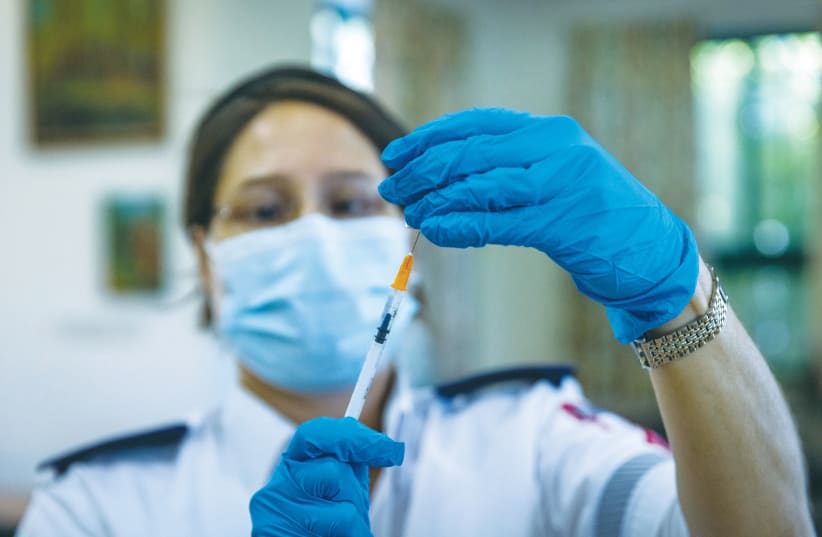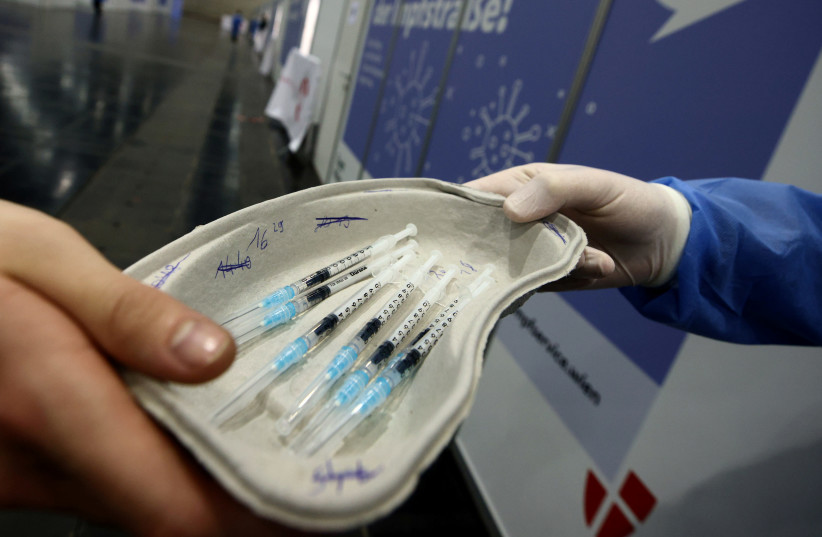Pfizer will request Emergency Use Authorization (EUA) for its coronavirus vaccine from the US Food and Drug Administration and the European Medicines Agency as soon as possible, the company announced Monday, reporting positive results from its Phase II/III trial.
“Over the past nine months, hundreds of millions of people ages 12 and older from around the world have received our COVID-19 vaccine,” said company CEO Albert Bourla in a press release. “We are eager to extend the protection afforded by the vaccine to this younger population, subject to regulatory authorization, especially as we track the spread of the Delta variant and the substantial threat it poses to children.
“Since July, pediatric cases of COVID-19 have risen by about 240% in the US, underscoring the public health need for vaccination,” Bourla continued. “These trial results provide a strong foundation for seeking authorization of our vaccine for children five to 11 years old, and we plan to submit them to the FDA and other regulators with urgency.”
The company is also planning to submit data from the full Phase III trial to a peer-reviewed scientific journal.
Today, we shared positive topline results from the pivotal trial of our COVID-19 vaccine in children 5 to 11 years of age: https://t.co/jQrvb6MZ6wThis is exciting news for families.
— AlbertBourla (@AlbertBourla) September 20, 2021
In Israel, the Health Ministry reported on Monday that 40% of the cases in recent days have been children under the age of 11. Among the Arab population, where schools have been running in full since September 1, the situation is even more acute.
“Proving the efficacy and safety of the vaccine in this age group is critical to protecting children and ending the pandemic,” said Dr. Tzachi Grossman, chairman of the Israeli Pediatric Association. “We will wait for the FDA approval, which is supposed to arrive within a few weeks, and after a discussion by the Advisory Committee for the Corona Vaccines and Epidemic Control, we will start vaccinating. I am optimistic.”
In this Pfizer clinical trial, there were 2,268 children between the ages of five and 11 who have received two doses of 10 micrograms of the company’s coronavirus vaccine, each 21 days apart. Within one month after the second dose, the antibody responses of the participants were comparable to those recorded in previous studies of people ages 16 to 25, the company said. The older cohort, however, received 30 micrograms.
“The 10-microgram dose was carefully selected as the preferred dose for safety, tolerability, and immunogenicity in children 5 to 11 years of age,” Pfizer explained.
It added that the vaccine was “well-tolerated,” with side-effects comparable to those experienced by the older cohort.
The company said it will continue to accumulate the safety and efficacy data required to file for full FDA approval for this age group.
The original Phase I/II/III trial initially enrolled 4,500 kids ages six months to 11 years in the US, Finland, Poland and Spain for more than 90 clinical trials. It was designed to evaluate the safety, tolerability and immunogenicity – the immune response – of the vaccine in three age groups: five to 11 years, two to five, and six months to two years.
Results for the other two age cohorts from the trial are expected as soon as the fourth quarter of this year, Pfizer said.

